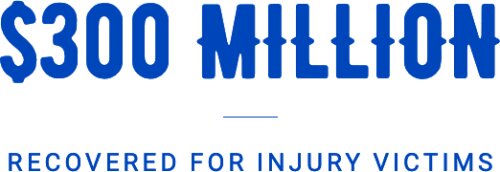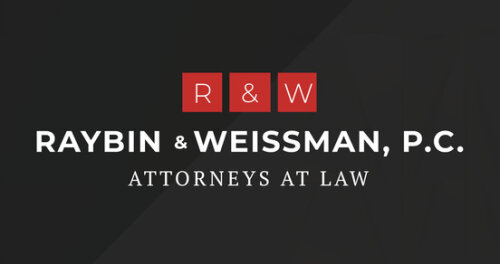Best Premises Liability Lawyers in Nashville
Share your needs with us, get contacted by law firms.
Free. Takes 2 min.
List of the best lawyers in Nashville, United States
About Premises Liability Law in Nashville, United States
Premises liability covers legal claims that arise when someone is injured on another person or business owner-occupant's property. In Nashville, as elsewhere in Tennessee, these claims are generally based on negligence - meaning the injured person must show the property owner or occupier failed to use reasonable care to keep the property safe or warn visitors of dangerous conditions. Common premises-liability scenarios include slip-and-fall accidents, negligent security claims, inadequate maintenance, and injuries from defective stairways, parking lots, sidewalks, pools, or snow and ice.
Premises-liability law balances responsibilities: property owners and occupiers have duties to different types of visitors, and the analysis often focuses on whether the owner knew or should have known about the hazard and whether they took reasonable steps to correct or warn about it. If you are injured on someone else’s property, you may be able to recover damages for medical bills, lost earnings, pain and suffering, and other losses.
Why You May Need a Lawyer
Premises-liability claims can be fact-specific and legally complex. You may want a lawyer if any of the following apply:
- Your injury required medical treatment, hospitalization, surgery, or ongoing care. Serious injuries often involve large bills and long-term effects that require careful documentation.
- Liability is disputed. Property owners and their insurers commonly deny responsibility or blame the injured person. A lawyer helps gather evidence and prove the owner breached their duty of care.
- Multiple parties may be responsible. Liability can extend to property owners, managers, maintenance contractors, municipalities, or product manufacturers. An attorney can identify and pursue all responsible parties.
- You face limits or special rules, such as claims against a government entity. Suits against municipal or state properties may have short notice windows and different procedures.
- The insurer makes a low settlement offer. Attorneys know how to quantify damages and negotiate or litigate for fair compensation. Many personal injury attorneys work on contingency, meaning they are paid only if you recover.
Local Laws Overview
Key legal principles and local considerations relevant to premises liability in Nashville include the following:
- Duty of care based on visitor status. Tennessee analyzes the duty owed by property owners based on the status of the injured person - for example, invitee, licensee, or trespasser - and the circumstances. Generally, invitees and business visitors receive the highest duty of care.
- Notice and foreseeability. A property owner is typically liable if they knew or should have known about a dangerous condition and failed to fix it or warn visitors. Constructive notice - the idea that a reasonably diligent owner would have discovered the hazard - is often a central issue.
- Comparative fault. Tennessee applies comparative fault principles. If the injured person was partly at fault, their recovery may be reduced in proportion to their percentage of fault. Because comparative fault rules affect damages, establishing fault allocation is a critical part of any claim.
- Claims involving government entities. Suits against the Metro Government of Nashville-Davidson County or other public bodies are subject to special rules under Tennessee law. Shorter notice periods, administrative claim requirements, and immunities may limit or alter remedies. It is important to act quickly and consult an attorney if a government property or employee may be involved.
- Statute of limitations and deadlines. There are time limits for filing personal injury claims and for providing notice to certain defendants. These time limits can be short, so do not delay in seeking legal advice and preserving your rights.
- Premises security and third-party criminal acts. Property owners can have liability for injuries caused by third-party criminal acts when the owner knew or reasonably should have known about a pattern of dangerous activity and failed to take reasonable protective measures. Foreseeability of the criminal conduct is the central question.
Frequently Asked Questions
What counts as premises liability?
Premises liability covers injuries that happen because of dangerous conditions on property - for example, wet floors without warning signs, torn carpeting, broken handrails, potholes, icy sidewalks, poorly lit parking lots, or inadequate security. The key issue is whether the property owner knew or should have known about the hazard and failed to take reasonable steps to address it.
Who can be held responsible for a hazardous condition?
Potentially responsible parties include property owners, landlords, property managers, tenants who control the premises, maintenance companies, and in some cases government entities. Liability depends on who controlled the property, who had the duty to maintain it, and whether that party breached the duty of care.
Do I still have a claim if I was partly at fault?
Yes. Tennessee applies comparative fault principles, which typically reduce the recovery by your share of fault. An attorney will help quantify fault and fight undue blame so your compensation is as high as possible given the circumstances.
What if I slipped on a wet floor in a store but there was no sign?
You may have a claim if you can show the store knew or should have known about the spill and did not clean it up or warn customers within a reasonable time. Evidence can include surveillance video, employee testimony, maintenance logs, photos, and witness statements.
How long do I have to file a premises-liability lawsuit?
There are deadlines for filing claims and special notice rules when a government entity is involved. These time limits can be short, so it is important to consult an attorney promptly to preserve your rights and avoid missing critical deadlines.
Can I sue a landlord if I was injured in my rental unit?
Possibly. Landlords generally have a duty to keep rental premises reasonably safe and to repair known dangerous conditions. If a landlord negligently failed to repair or warn about hazards that caused your injury, you may have a claim. Lease terms and local housing codes may also be relevant.
What damages can I recover in a premises-liability case?
Potential damages include medical expenses, future medical costs, lost wages, loss of earning capacity, pain and suffering, emotional distress, and in some cases punitive damages if the owner's conduct was especially reckless. An attorney can help document and value these losses.
Will the property owner’s insurance cover my claim?
Many property owners carry liability insurance that may cover premises-related injuries. Insurance companies will investigate claims and often attempt to limit payouts. An experienced lawyer can handle communications with insurers and advocate for a fair settlement or litigate if necessary.
What evidence is most important in a premises-liability claim?
Key evidence includes photos and videos of the hazard, incident reports, surveillance footage, medical records, witness statements and contact information, maintenance logs, inspection records, and any written communications about the condition. Preserve clothing and footwear if they are relevant.
Should I give a recorded statement to the property owner’s insurer?
You are not required to give a recorded statement and should consult with an attorney before doing so. Insurers often use recorded statements to minimize claims. An attorney can advise whether a statement is appropriate and can often handle communications on your behalf.
Additional Resources
Helpful organizations and resources for Nashville residents dealing with premises-liability issues include:
- Metro Nashville Government - for information about public sidewalks, municipal property, and city-operated facilities, and to learn about any local claim procedures.
- Tennessee Code and Tennessee statutes - for statutes governing tort litigation, governmental liability, and civil procedure.
- Tennessee Bar Association - for lawyer referral services and resources on finding qualified personal injury attorneys.
- Nashville Bar Association - local bar resources and referral options for attorneys experienced in premises-liability matters.
- Legal Aid Society of Middle Tennessee and the Cumberlands - for people who may need low-cost or pro bono legal help.
- Local courts - civil procedure rules and forms may be necessary if you pursue a lawsuit.
Next Steps
If you believe you have a premises-liability claim, use the following checklist to protect your rights and prepare for legal advice:
- Seek medical attention immediately and follow medical advice. Your health and medical documentation are priorities.
- Preserve evidence. Take photos of the hazard and your injuries, keep clothing and shoes worn during the incident, and preserve any relevant documents or receipts.
- Collect contact information from witnesses and get a copy of any incident or accident reports from the property or business.
- Keep thorough records of medical bills, lost wages, and out-of-pocket expenses related to the injury.
- Avoid giving recorded statements or signing releases without consulting an attorney.
- Contact a qualified premises-liability attorney for a consultation as soon as possible. Ask about experience with similar cases, contingency-fee arrangements, and the attorney’s strategy for proving liability and damages.
- If a government entity may be responsible, mention that to the attorney early so any special notice or procedural requirements can be met promptly.
Prompt action improves your ability to preserve evidence, meet legal deadlines, and obtain the documents needed to prove your claim. If you are unsure about your rights, seek a consultation with a lawyer who handles premises-liability cases in Nashville.
Lawzana helps you find the best lawyers and law firms in Nashville through a curated and pre-screened list of qualified legal professionals. Our platform offers rankings and detailed profiles of attorneys and law firms, allowing you to compare based on practice areas, including Premises Liability, experience, and client feedback.
Each profile includes a description of the firm's areas of practice, client reviews, team members and partners, year of establishment, spoken languages, office locations, contact information, social media presence, and any published articles or resources. Most firms on our platform speak English and are experienced in both local and international legal matters.
Get a quote from top-rated law firms in Nashville, United States — quickly, securely, and without unnecessary hassle.
Disclaimer:
The information provided on this page is for general informational purposes only and does not constitute legal advice. While we strive to ensure the accuracy and relevance of the content, legal information may change over time, and interpretations of the law can vary. You should always consult with a qualified legal professional for advice specific to your situation.
We disclaim all liability for actions taken or not taken based on the content of this page. If you believe any information is incorrect or outdated, please contact us, and we will review and update it where appropriate.









